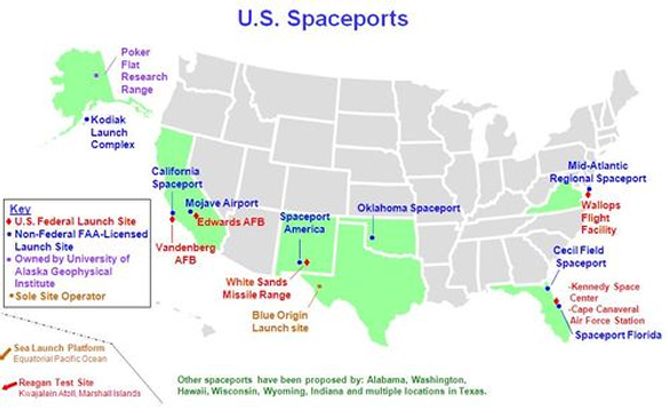Yesterday’s program, The Next Space Race, on Bloomberg TV was an excellent introduction to the commercial aerospace companies, SpaceX, the Sierra Nevada Company (SNC), and Boeing. The following are important points, at the stated times, in the program:
0.33 mins: The cost of space travel has clipped our wings.
5:18 mins: How many people knew Google before they started?
7:40 mins: SpaceX costs, full compliment, 4x per year at $20 million per astronaut.
11:59 mins: Noisy rocket launch, notice also the length of the hot exhaust is several times the length of the rocket.
12:31 mins: One small step for man, one giant leap for mankind.
12:37 mins: Noisy shuttle launch, notice also the length of the hot exhaust is several times the length of the rocket.
13:47 mins: OPF-3, at one time the largest building in the world at 129 million cubic feet.
16:04 mins: States are luring private companies to start up in their states.
16:32 mins: NASA should be spending its money on exploration and missions and not maintenance and operations.
17:12 mins: The fair market value of OPF-3 is about $13.5 million.
17:19 mins: Maintenance cost is $100,000 per month
17:47 mins: Why Florida?
18:55 mins: International Space Station (ISS) cost $60B and if including the Shuttle program, it cost $150B.
19:17 mins: The size of the commercial space launch business.
21:04 mins: Elon Musk has put $100 million of his own money into SpaceX.
21:23 mins: The goals of NASA and private space do not conflict.
Summary:
1. Cost of ISS is $60B, total cost including the Shuttle program is $150B.
2. SpaceX cost is $20M per astronaut (for 7 astronauts) or a launch cost of $140 million per launch at $560 million per year for 4 launches per year.
3. The next space race is about money.
4. NASA will give a multi billion dollar contract to private space companies to ferry humans & cargo into space and back.
5. Orbiter Processing Facility 3 (OPF-3) valued at $13.5million, and an estimated area of 207,000 sq ft gives a value of $65.22/sq ft.
6. With a maintenance costs of $100,000 gives a per sq ft maintenance costs of $0.48/sq ft/month or $5.80/sq ft/year.
7. Another reason for the Cape Canaveral NASA launch site is the mandatory no/low population down range for rocket launches. At Cape Canaveral this down range is the Atlantic Ocean.
